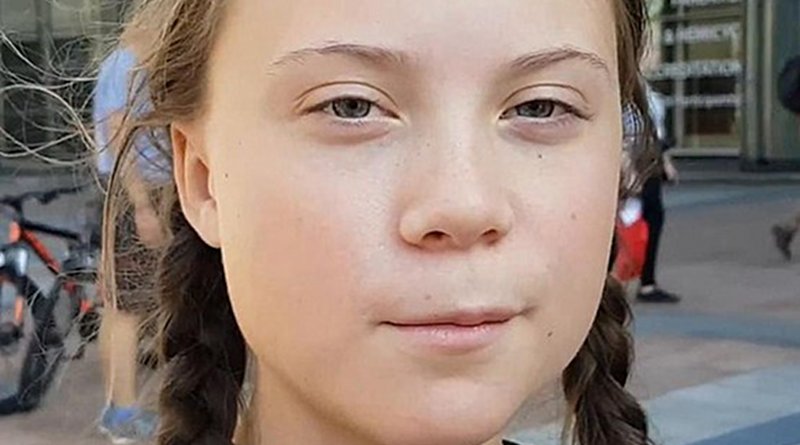Divisions To The Fore As World Leaders Gather At UN – OpEd
By Arab News
By Chris Doyle*
The world’s premier diplomatic event has kicked off once again in New York. Turtle Bay is hosting its annual gathering of world leaders but, amid all the pomp and fanfare, what will be achieved and what issues and figures will seize center stage?
The non-attendees may be substantial. No Vladimir Putin of Russia. No Xi Jinping of China. Having failed to win the Israeli elections, the UN General Assembly (UNGA) will also be deprived of its annual chest-thumping, prop-aided performance from Benjamin Netanyahu. Canada’s Justin Trudeau will also not be showing his face, whatever color it might be. Will it be Angela Merkel’s last UNGA? The German chancellor has acted as the unofficial leader of the multilateralist camp that has been under the cosh from insurgent populist leaders for several years now.
As ever, wherever he goes, US President Donald Trump will steal headlines and hoover up publicity. Two years ago, he threatened to “totally destroy” North Korea. The following year, he praised “Chairman Kim (Jong Un) for his courage and for the steps he has taken.” It is a fair bet that any fulminations this year will be directed squarely at Iran and its leaders. The brief window when the bizarre scenario of a Trump-Hassan Rouhani meeting looked a possibility has clearly closed after the attacks on Saudi Arabia’s oil facilities. Nevertheless, many will be looking for clarity from Trump as to the future of his Iran strategy.
Critics and cynics typically line up to rubbish this gathering. In fairness, they often have much to feed off. Who can forget Fidel Castro’s five-hour speech in his first appearance in 1960? Ten years ago, the then-Libyan leader Muammar Qaddafi made his only UN speech, ripping up the UN Charter and comparing the Security Council to Al-Qaeda.
While few if any leaders will compete with these shenanigans, new figures will attempt to light up the stage. Boris Johnson, the UK’s new prime minister, always enjoys a podium and will no doubt try to sell a future for post-Brexit Britain. He will feign confidence that it will not be his first and last UNGA as leader, but the UK’s politics is currently as uncertain as its weather. Jair Bolsonaro, Brazil’s president, will make his debut and is expected to deliver an abrasive defense of his government’s handling of the forest fires in the Amazon. Do not expect him to be high-fiving President Emmanuel Macron of France, given their recent spats.
But, if there is a single issue that will dominate, it will be the environment and climate change.
UN Secretary-General Antonio Guterres has made this his focus for the 74th UNGA. Climate change is an issue tailor-made for the UN, requiring a coordinated global effort. This might not sit so well with the UN’s American hosts. Trump was elsewhere — at a meeting on religious freedom — during Monday’s climate action summit, eschewing the topic once again (he didn’t mention the climate in his first two UNGA speeches).
Guterres, meanwhile, has clothed himself in green. He sounds more activist than diplomat, more a representative of civil society than a man selected by and answerable to global governments. He clearly wants to hold leaders to account. He is blatantly open that he is deploying civil society and popular movements to put pressure on governments. He highlighted drought in Africa, glaciers melting and corals bleaching among the alarming trends. He reminded everyone that July was the hottest month in recorded human history. No region is left unaffected. The Middle East is faced with rising sea levels, water scarcity, desertification and more and more dust storms.
Civil society was in evidence, fronted by the school striker, 16-year-old Swede Greta Thunberg. The Youth Climate Summit took place over the weekend on the back of the biggest global climate change protest in history on Friday. Yet these campaigners are unlikely to feel that world leaders will commit to doing enough. They ask for leaders to listen to the scientists, with more than 97 percent of published climate scientists blaming human activity for the rise in global temperatures.
Other issues may struggle to get a look-in. Aside from climate change, a review of the Sustainable Development Goals and universal health coverage are billed as key topics, both anathema to Trump. The rest of the world appears keen to try to move on without him.
Navigating the rest of the UNGA is to wade through a thick alphabet soup of absurd acronyms for a huge raft of bodies of varying effectiveness. Certain issues will no doubt be slapped with the “too difficult” tag. Will the Hong Kong protests get a mention? For a while, the UN has been just bit-part support act on Syria. The divisions on the UN Security Council are as sharp as ever, with Russia last week casting its 13th veto on the issue and China its seventh since the war began in 2011.
All in all, the public results of this General Assembly may provide slim pickings. The more realistic hope is that all the side meetings and bilaterals that happen behind closed doors bear more fruit, not least on climate change, either with or without the US. Stopgap measures will not suffice; only meaningful commitments and plans will start to assuage public concerns. For as much as the climate is changing, so too is the climate of global public opinion.
- Chris Doyle is director of the London-based Council for Arab-British Understanding. Twitter: @Doylech

